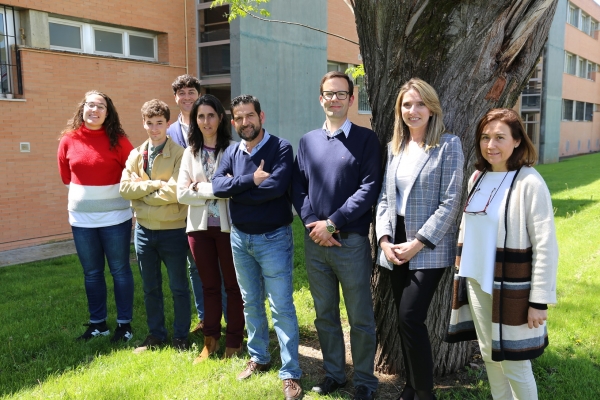Lands where grasses or herbaceous forage predominate, and not used in crop rotation for five years or more, are considered permanent pastures, and can be found in a wide range of forms throughout the European Union. This is why the diversity of Europe's permanent pastures is one of its defining characteristics.
This diversity also poses a challenge when it comes to identifying links between them: how are they to be classified? What indicators should be included? How are they to be measured? The search for a common and integrative point of view to obtain an overview of the EU's permanent pastures and, from there, establish what they contribute to society, and how to implement sustainable management strategies, is the line being followed by the project known as Super-G: Developing SUstainable PERmanent Grassland systems and policies.
The University of Cordoba participates in this project through a multidisciplinary group of the Technical School of Agricultural and Forestry Engineering, led by Professor of Hydraulic Engineering in Unit of Excellence “María de Maeztu” - Department of Agronomy Tom Vanwalleghem, focusing on the permanent pastures that characterise the most proximate action area: la dehesa, the Iberian Peninsula's unique wooded pasturelands.
This team typifies the dehesa to raise awareness of its different ecosystem services, which are of value in improving different aspects of society.
Currently, the great problem with these ecosystems is their economic profitability for the producer. In Andalusia landowners have very marginal profits, a situation that renders generational handover increasingly difficult, endangering a landscape that has been the backbone of many of those who have traditionally lived in these areas.
The protection of the dehesa entails, therefore, upholding the value of what it offers. The maintenance of biodiversity, sources of clean water, soil protection against erosion, fire control, its contribution of recreational value for activities such as rural tourism; and population anchorage, due to its primary sector function, are some of the ecosystem services that the dehesa provides and that this research group has begun to espouse and make known. Thus, society at large, and those who make political decisions, in particular, will better appreciate all that permanent pastures really offer, and what would be lost if they disappeared.
An essential theme woven throughout the project is climate change, and the power of pastures to cope with it. Drought affecting these pasturelands is one of the things that most worries their managers, especially in Cordoba. After working side by side with those who live off the pastures to hear their main concerns, almost all of them stress one thing: drought.
Once the dehesa has been typified, and its characteristics identified, the UCO team devises one of the first strategies to solve these problems: the evaluation of new forage species and their resistance to climate change and, particularly, drought. Measuring these characteristics, along with those related to production, biomass creation and erosion retention, is the first strategy to bolster the dehesa's sustainability.
The creation of the European permanent pastures map calls for the establishment of common indicators among the 20 partners from the 14 European countries that make up Super-G, and working with a very active network of growers, whose properties and their operations are taken as case studies to test and verify the results of the strategies proposed.
Despite the diversity of needs of farmers in each country (in the UK, for example, they are more interested in the design of apps to predict production), climate change is the bane of those seeking a stable outlook in their areas.
The technical, economic and social analysis that can be carried out by a multidisciplinary team, such as the UCO's ETSIAM, is one of the main advantages to ensure the sustainability of the dehesa and to offer decision-makers at the European level a decisive tool.


